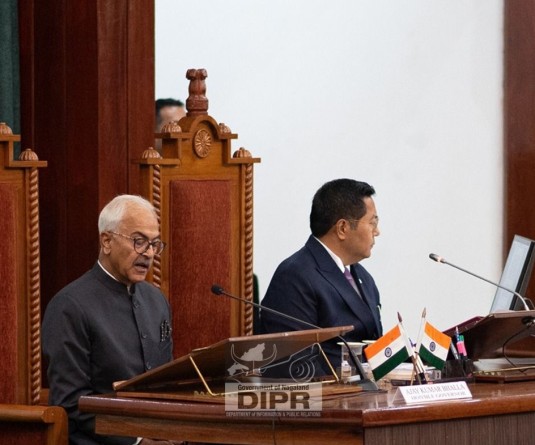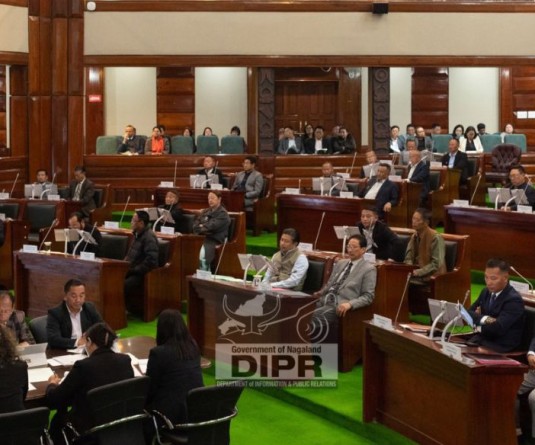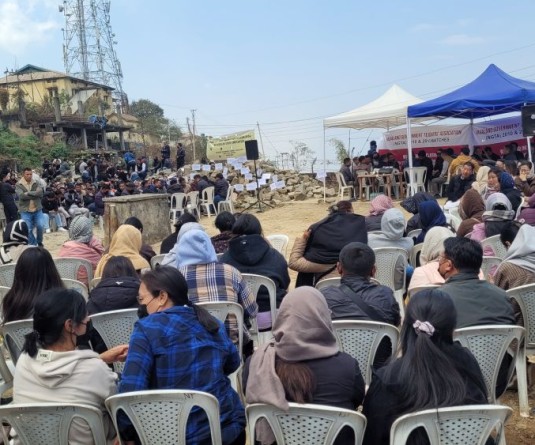
Dimapur, March 11 (MExN): The “truncating of rights” is a common feature of India’s accord-making history, said Dr. Kumar Sanjay Singh, Associate Professor of the Department of History at University of Delhi. He was speaking at a talk cum discussion on the ‘Naga-India conflict: Then and Now’ organized by the Forum for Understanding the Naga-India Conflict & Human Rights (FUNICH) on March 6 at the School of Open Learning, University of Delhi.
Dr. Singh, while focusing on the peace talks since 1997, also criticized the way the talks between the main negotiating party on behalf of the Nagas—NSCN (IM) – and India has been taking shape. He wondered if this is a sign of a “failure of the leadership” or decoded as “perversity of the people who represent the Government of India”.
FUNICH is an initiative of a group of students from the University of Delhi, set up with the objective of drawing the attention and sensitization of students and concerned citizens towards the Naga-India conflict and also to provide a platform for political debate by including dialogue/ dialectic between the multiple parties involved in the conflict.
Renowned writer and democratic rights activist Gautam Navlakha, also associated with the Peoples’ Union for Democratic Rights (PUDR), spoke on the Naga right to self determination and the response of the Indian State. Elaborating the Indian State’s war on “its people”, Navlakha highlighted the counter-insurgency policies adopted by the State in the Naga areas of North East India. Elaborating on anecdotes and instances in history, Navlakha compelled the audience to understand how the Indian State deployed its Army in the Naga areas and how the Naga areas were the test labs for the various draconian laws seen in India today. The discussion, chaired by Associate Professor at IGNOU, Dr. R Vashum, focused on bridging gaps between the Nagas and people of ‘mainland India’. The discussion was attended by assistant professors and students from the Department of Social Work, as well as students and scholars, both Naga and non Naga from various universities in Delhi.






